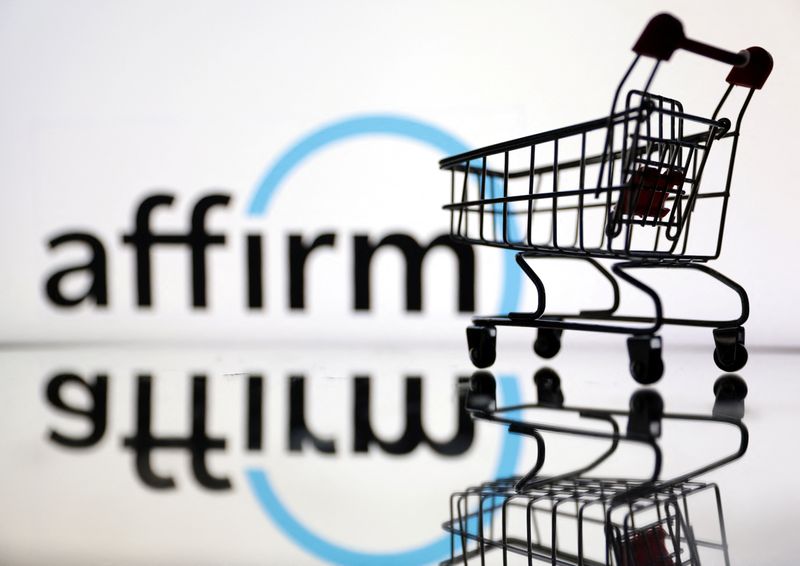Affirm soars as BNPL lender aims to turn profit ahead of Street targets
2024.08.29 12:20
By Manya Saini
(Reuters) – Affirm shares rose 33% on Thursday after the buy-now-pay-later lender trounced estimates for quarterly results and said it expects to be profitable by the fourth quarter of next fiscal year, sooner than Wall Street had forecast.
Cash burn has been one of the biggest drags on the valuation of financial technology companies, especially for those operating in the payments sector, which also remains vulnerable to fluctuations in consumer health and interest rates.
In a letter to shareholders late on Wednesday, Affirm revealed its ambitious profitability goal and its intention to sustain it, after reporting strong fourth-quarter results.
The company’s net revenue jumped 48% to $659.2 million in the three months ended June 30, beating LSEG estimates of $603.7 million.
Net loss narrowed to 14 cents per share, far smaller than Street expectations of 48 cents.
Bank of America analysts said the results reflected strong operating momentum, and Affirm’s profitability forecast was “much sooner than anticipated.”
The brokerage had initially expected a profit in fiscal 2026.
“We view the lower interest rate environment, scale-driven profitability outlook and Affirm’s idiosyncratic growth prospects as attractive,” BofA said in a note.
Gross Merchandise Volume (GMV)- the total dollar amount of all transactions on the Affirm platform – surged 31% to $7.2 billion in the quarter.
“Affirm continues to fire on all cylinders, outgrowing e-commerce and payment peers,” J.P.Morgan analysts said.

Strong GMV growth at Affirm, stands in sharp contrast to the broader payments sector which flagged a hit to consumer spending in the April-to-June quarter, due to weakness in discretionary purchases, particularly among the lower-income bracket.
“(We) don’t see growth as an issue for Affirm thanks to a combination of nascent BNPL adoption in the U.S. and landmark partner agreements, like the one recently announced with Apple (NASDAQ:),” said Kevin Kennedy, analyst at research firm Third Bridge.








